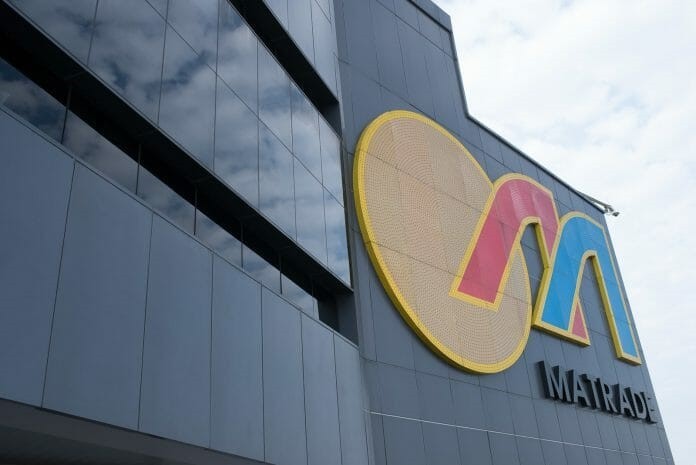
Image credit: Business Today
KUALA LUMPUR: Malaysia’s halal exports are expected to reach RM65 billion by 2025, up from RM54 billion in 2023, according to Malaysia External Trade Development Corporation (Matrade).
Matrade deputy CEO (export acceleration) Abu Bakar Yusof said the confidence is driven by growing global demand for halal products and Malaysia’s position as one of the leaders in the halal market.
“The forecast for the halal products market is to reach US$5 trillion (RM23.3 trillion) by 2030. Last year, the halal economy was US$3 trillion. There is a lot of room for Malaysia to capitalise on these opportunities. Malaysia has the advantage because our Jakim (Department of Islamic Development Malaysia) halal certification is highly recognised and much sought after by the international business community,” Abu Bakar told SunBiz in an exclusive interview.
He mentioned that Malaysia’s strength in the global halal market comes from its innovation, research and development efforts and collaboration with international partners.
“Currently, our focus is on the high-value-added food and beverage (F&B) industry, catering not only to domestic consumers but also to the global market.”
Abu Bakar said high-value F&B products undergo significant transformation compared to traditional items, integrating advanced technologies, rigorous research and quality control measures. “This transformation not only enhances product quality but we can also position these goods at premium price points for the medium and high end market.”
Malaysia’s success stories in halal exports include products such as durians and birds’ nests, with China emerging as a key consumer market, he said. “Our durians and birds’ nests exemplify Malaysia’s capacity to leverage high-value products in international trade.”
Moreover, Abu Bakar said, the halal high-value F&B products align with sustainability and environmental, social and governance principles.
“Companies that integrate sustainable practices throughout their supply chains, from sourcing raw materials to packaging and distribution, not only appeal to environmentally conscious consumers but also enhance their market competitiveness,” he added.
Abu Bakar noted that Malaysia has about 10,000 companies certified by Jakim for halal standards, primarily in the F&B sector.
“The goal is to expand this certification base further where halal certification not only meets religious requirements but also aligns with global sustainability demands. This is where we encourage our producers, local producers and manufacturers to go into more research R&D and also innovation, automation so that they can cater for these international requirements,” he said.
Malaysia’s growth in halal exports is also driven by sectors such as pharmaceuticals and cosmetics, which are seeing increasing demand from countries in the Middle East, Europe and Asia, Abu Bakar said.
“The global halal industry is experiencing robust growth driven by consumer awareness and demand for products that adhere to Islamic laws,” he said.
Being halal does not only cover the slaughtering of animals, it encompasses the entire supply chain.
“We have both food and non-food to cover as halal products. That’s why the total halal export figure is bigger than only processed food. Processed food was RM30 billion last year, while total halal RM54 billion last year because it covers non-food as well,” he explained.
Abu Bakar said halal includes ensuring adherence to sustainability standards, hygiene practices, and rigorous facility inspections. “Even the logistics play a role, with dedicated Halal logistics providers ensuring that products maintain their integrity throughout transportation.”
Source: https://thesun.my/business-news/matrade-confident-malaysia-s-halal-exports-will-reach-rm65b-by-2025-NF12719015

